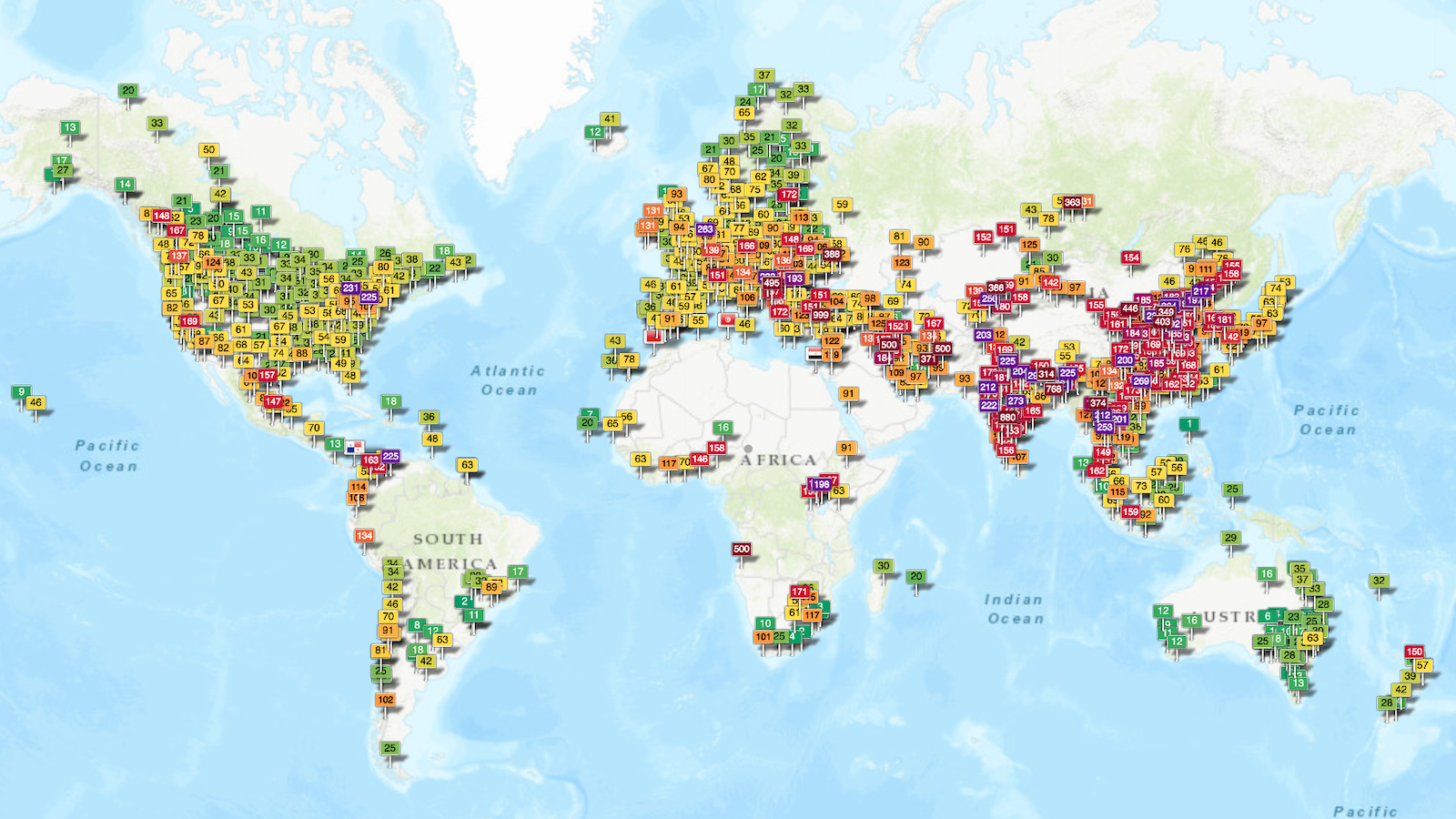Despite gloomy headlines, our planet is getting cleaner and healthier

- Dreary, despondent headlines about pollution and climate change are the norm. But they are not painting a full or accurate picture.
- While Earth is still no Garden of Eden, many countries are making serious efforts to become clean and green. The results are scientifically notable but underreported by the media.
- Human ingenuity is the ultimate resource. In a world filled with bad news, that’s a fact worth celebrating.
There is no shortage of bad news in media headlines. “Climate change is already killing us,” the World Health Organization (WHO) declared in the run up to the UN’s COP 27 Climate Change Conference. “Low levels of air pollution deadlier than previously thought,” McGill University lamented. “Brazil’s plans to pave an Amazon road could open path to more deforestation,” yet another despondent headline from NPR blared.
Most people undoubtedly accept that climate change, air pollution, and deforestation are very real problems we ought to take seriously. What fewer of us seem to realize, however, is that the world has taken these issues seriously and made significant progress toward solving them as a result. This observation leads us to an important but oft-overlooked conclusion: Economic growth and technological innovation are making our planet a cleaner, safer place to live.
Pollution is plummeting
“Between 1970 and 2020,” according to the U.S. Environmental Protection Agency (EPA), “the combined emissions of the six common pollutants (PM2.5 and PM10, SO2, NOx, VOCs, CO, and Pb) dropped by 78 percent.” Similar trends have been observed in other developed nations as well. Between 1970 and 2016, the UK reduced its emissions of all air pollutants except ammonia by 60%. The trend is unmistakable to anyone looking carefully at the evidence. Drs. Hannah Ritchie and Max Roser helpfully summed up the situation for Our World in Data in 2019:
“What becomes clear is that far from being the most polluted in recent history, the air in many rich countries today is cleaner than it has been for decades.”
They rightly cautioned that we have more work to do. Many developing countries have yet to acquire the resources necessary to invest in pollution-reduction measures; they are primarily focused on raising their standard of living by gaining access to abundant food and energy supplies, for example. As their economies develop, they will have both the means and the desire to tackle air pollution. This pattern has been observed in countries all over the world.
More food on less land
One of the best ways to bring a nation out of grinding poverty is to boost its agricultural productivity. The introduction of high-yielding crop varieties during the Green Revolution, led by plant pathologist Norman Borlaug, nicely illustrated how this phenomenon works. According to a July 2021 study, enhanced crops developed between 1965 and 2010 increased food production by more than 40%, saving the world a whopping $83 trillion. Addressing the environmental impact of agriculture, the authors didn’t mince words:
“Our paper also sheds light on a concern, often expressed in the literature, that agricultural productivity improvements would pull additional land into agriculture at the expense of forests and other environmentally valuable land uses. We find evidence to the contrary… the Green Revolution tended to reduce the amount of land devoted to agriculture.”
Here’s just one way we know this conclusion is correct. Since 1961, farmland has only expanded by 7% while the global population has boomed — increasing by nearly 150%. Hannah Ritchie and Max Roser also captured the significance of this explosion in food production:
“The world passed ‘peaked deforestation’ in the 1980s and it has been on the decline since then… We lost 150 million hectares — an area half the size of India — during that decade… Since then, deforestation rates have steadily declined, to 78 million hectares in the 1990s; 52 million in the early 2000s; and 47 million in the last decade.”
What about climate change?
Of course, climate change is the elephant in the room. Greenhouse gas (GHG) emissions have increased in recent decades, which has led the WHO and others to warn about the looming public health impacts of heat waves, wildfires, and other natural disasters caused by global warming. Even here, though, the disaster projections that so often make headlines are out of step with the evidence.
For one thing, improved infrastructure (such as widespread air conditioning) has helped prevent a lot of weather-related mortality. Deaths due to natural disasters more broadly have also plummeted: A century ago, natural disasters commonly killed more than a million people annually. Today, that figure hovers somewhere between 10,000 and 20,000 deaths per year.
Recent research has shown that fossil fuels have generated far fewer GHG emissions than projected by commonly used climate models, a divergence that “is going to only get larger in coming decades,” climate researcher Roger Pielke, Jr. explained in November 2020. This means that the worst-case climate scenario grows “increasingly implausible with every passing year,” climatologists Zeke Hausfather and Glen Peters argued that same year in the journal Nature. These results led the New York Times to report in October 2022:
“Thanks to astonishing declines in the price of renewables, a truly global political mobilization, a clearer picture of the energy future and serious policy focus from world leaders, we have cut expected warming almost in half in just five years.“ [Emphasis added]
Greener planet
What does all this mean? The economist Julian Simon was right: Human ingenuity is the ultimate resource. We have always faced serious threats to our well-being, but we’re also very good at developing long-term solutions to those problems. In a world filled with bad news, that’s a fact worth celebrating.





